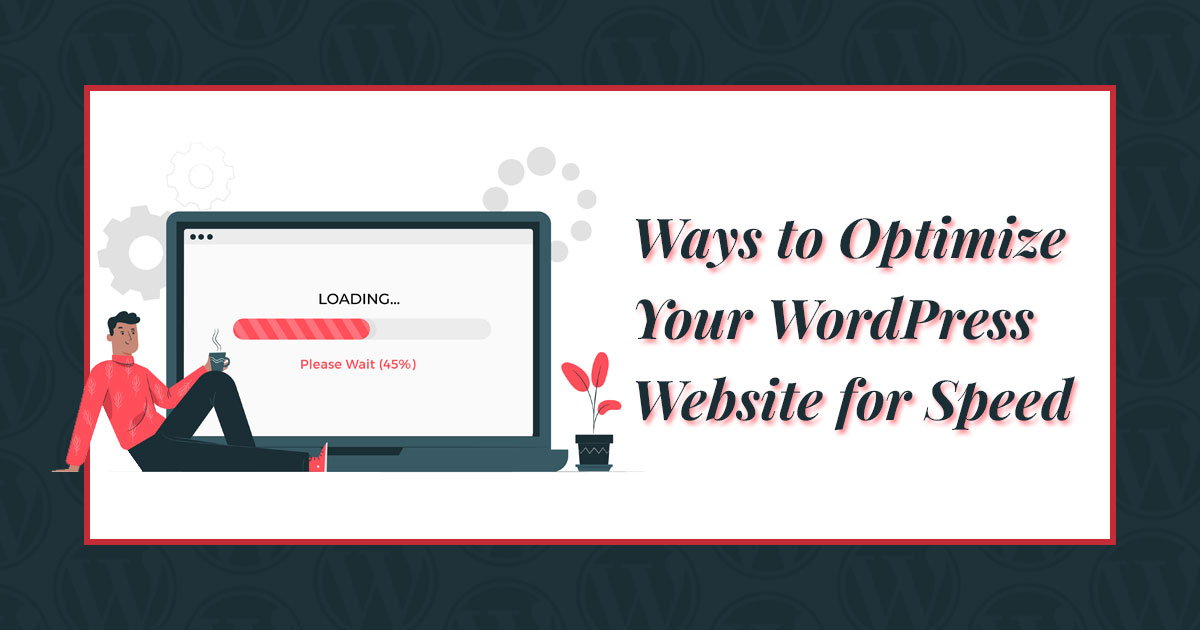WordPress is a content management system (CMS) that enables you to create a website or blog from scratch, or to improve an existing website. Speed is a key factor in the success of any website, and WordPress websites are no exception.
There are a number of ways to optimize your WordPress website for speed, and this article will outline some of the most important ones. Following these tips will help improve the user experience on your website, and may even help you rank higher in search engine results.
Choose a Fast and Reliable Web Host
When it comes to choosing a web host, there are many factors to consider. Speed and reliability are two of the most important, as your website will need to load quickly and be available at all times.
Uptime is another important factor, as you don’t want your site to go down when users try to access it. You want to optimize your WordPress site performance. Security is also crucial, as you need to be sure that your data is safe from hackers.
There are many web hosting providers to choose from, so it’s important to do your research and select the top wordpress hosting that best meets your needs.
With so many options available, you’re sure to find a fast and reliable web host that can keep your site up and running smoothly.
Use a Caching Plugin To Store a Static Version of Your Website on the Server
A caching plugin is a great way to improve the performance of your website. By storing a static version of your site on the server, it can dramatically reduce the time it takes to load pages.
This is especially helpful for sites that receive a lot of traffic, as it helps to reduce the strain on the server.
In addition, caching can also help to improve the user experience by making pages load faster. There are a number of different caching plugins available, so be sure to choose one that is compatible with your CMS or framework.
With a little bit of configuration, you can have a faster and more efficient website in no time.
Enable Compression To Reduce the Size of Your Website Files
When building a website, it’s important to keep file size in mind. Large files can take longer to load, resulting in a less responsive site and unhappy visitors.
One way to reduce file size is to enable compression. This process reduces the amount of data in a file, making it smaller and faster to download.
There are many different compression algorithms available, so it’s important to choose one that suits your needs. For example, some algorithms are better at compressing images, while others work better on text files.
Once you’ve selected an algorithm, you can enable compression by adding a few lines of code to your server configuration. Doing so can help to improve your site’s performance and ensure that visitors have a positive experience.
Use a Content Delivery Network (CDN) To Speed up Page Loading Times
A content delivery network (CDN) is a key part of any website optimization strategy. By distributing content across a global network of servers, a CDN improves page loading times for users around the world.
CDNs work by caching static content such as images and CSS files on servers closest to the user’s location. When a user visits a website, the CDN delivers the cached content from the nearby server, rather than requiring the site to retrieve the content from a central server.
This can result in significantly faster page loading times, as well as reduced bandwidth costs for the website owner.
CDNs also provide other benefits such as improved security and increased availability during peak traffic periods. For these reasons, CDNs are an essential tool for anyone looking to speed up their website.
Minimize the Number of Plugins You Use on Your Website
When it comes to website design, there is no one-size-fits-all solution. However, one piece of advice that is often given is to minimize the number of plugins you use.
While plugins can be incredibly useful, they can also slow down your website and cause conflicts with other parts of your code.
Additionally, plugins need to be regularly updated, which can be a hassle for busy website owners. For these reasons, it is often best to limit the number of plugins you use on your website.
If you do need to use multiple plugins, make sure to test them thoroughly before making them live on your site. By taking these precautions, you can ensure that your website runs smoothly and efficiently.
Configure Expires Headers So That Browsers Can Cache Static Files for Longer Periods of Time
If you want your website to load faster, one thing you can do is configure expires headers so that static files are cached by browsers for longer periods of time.
This means that the browser won’t have to re-download these files each time a user visits your site, which can help reduce your server’s load time and improve your site’s overall performance.
However, it’s important to note that you should only cache static files that aren’t likely to change very often, such as images, CSS files, and JavaScript libraries.
Caching dynamic content, such as HTML pages, can lead to outdated content being served to users. It’s always important to test any changes you make to your website before deploying them to your live site.
Conclusion
By following the above tips, you can ensure that your WordPress website loads faster and is more responsive. This will improve the user experience for your visitors, which could lead to higher conversion rates. A faster website may also rank higher in search engine results pages (SERPs).


